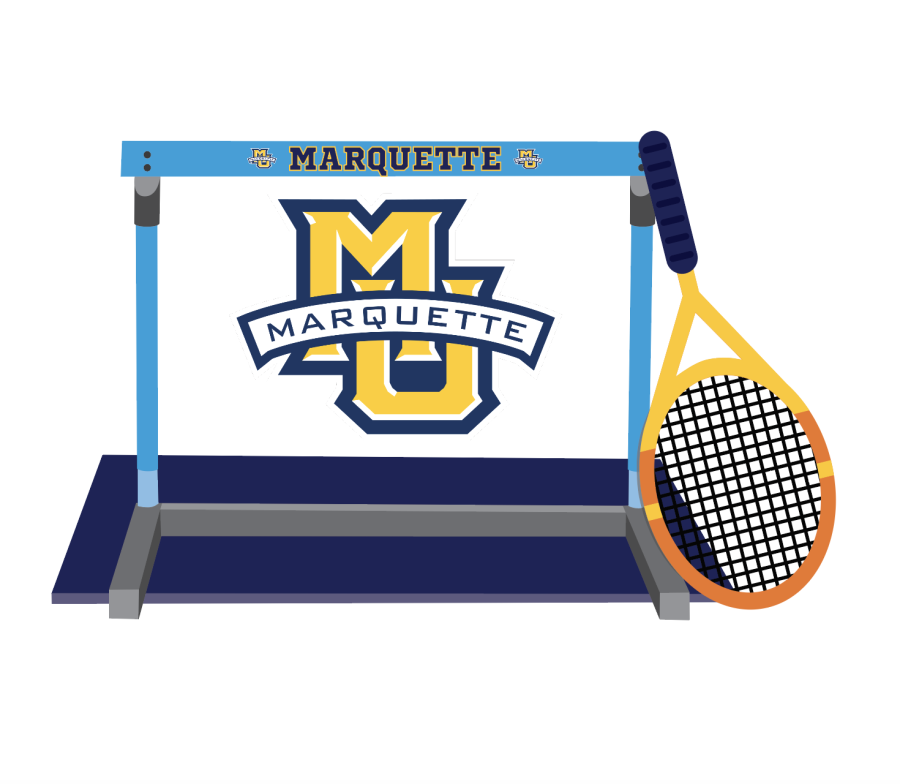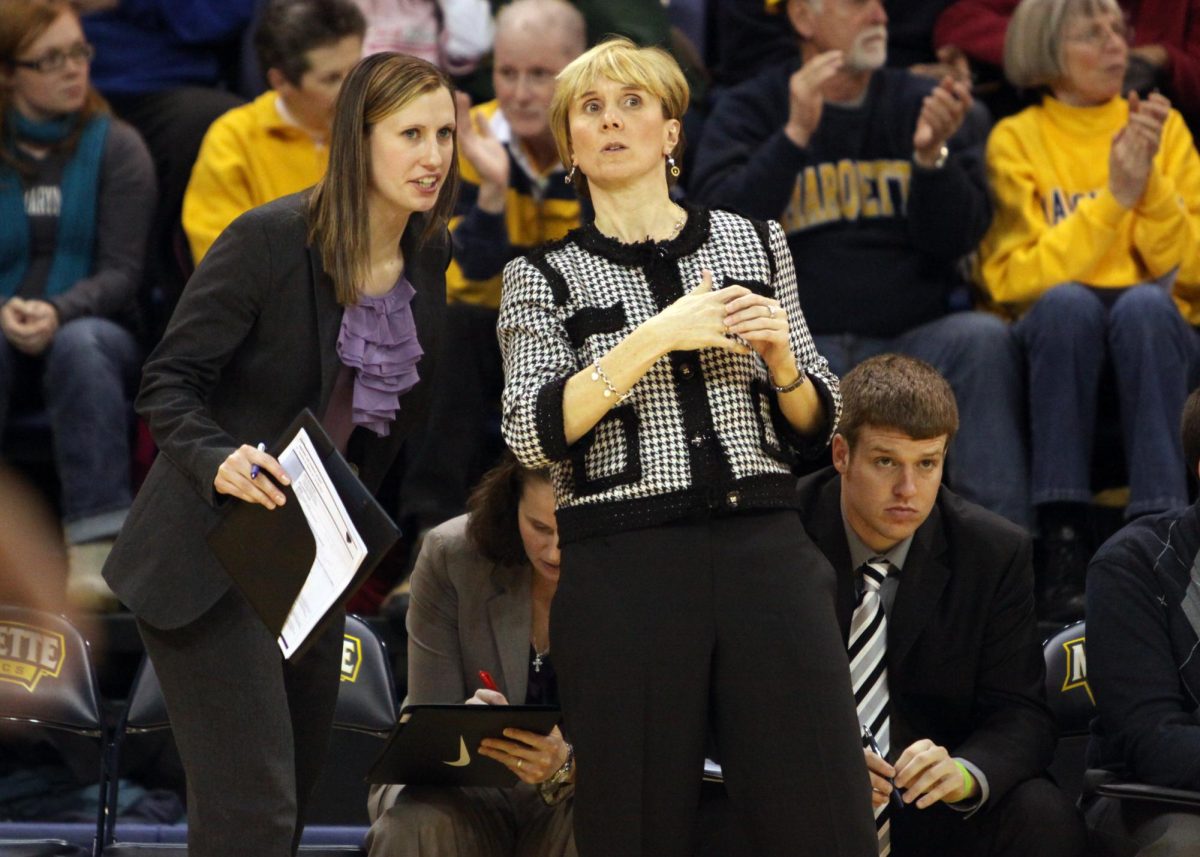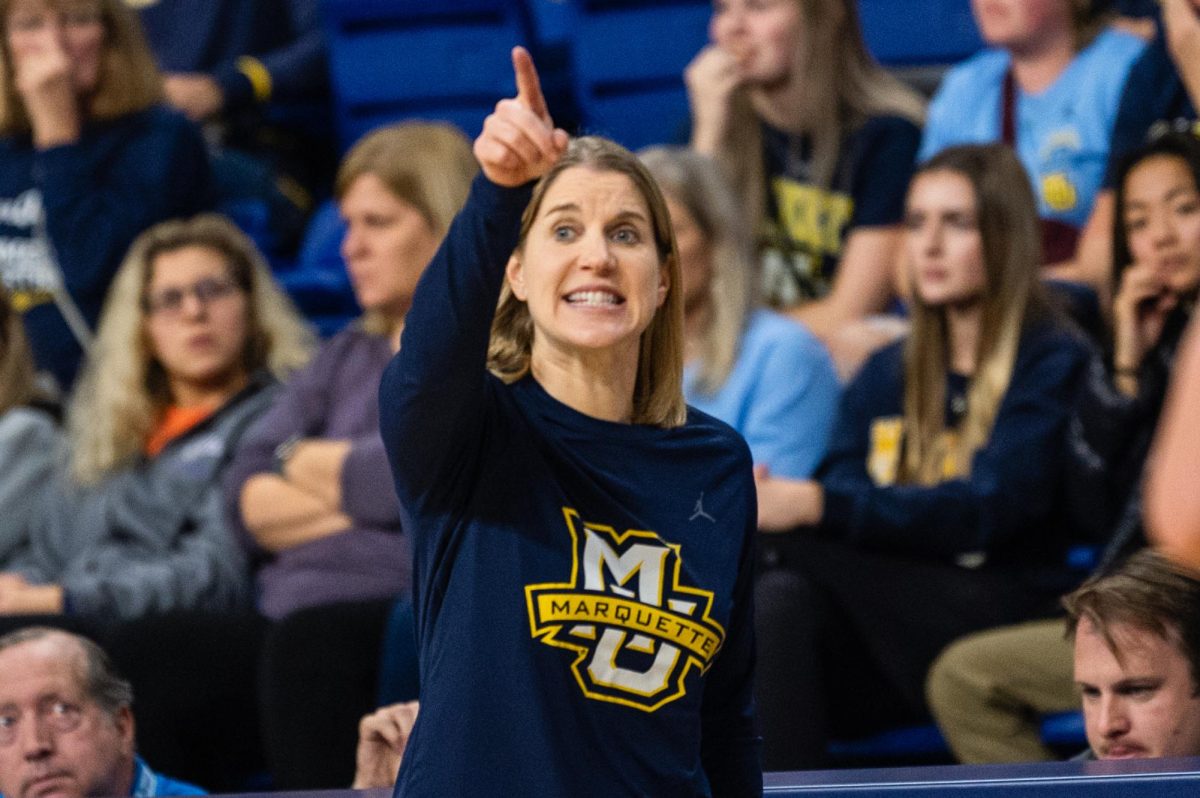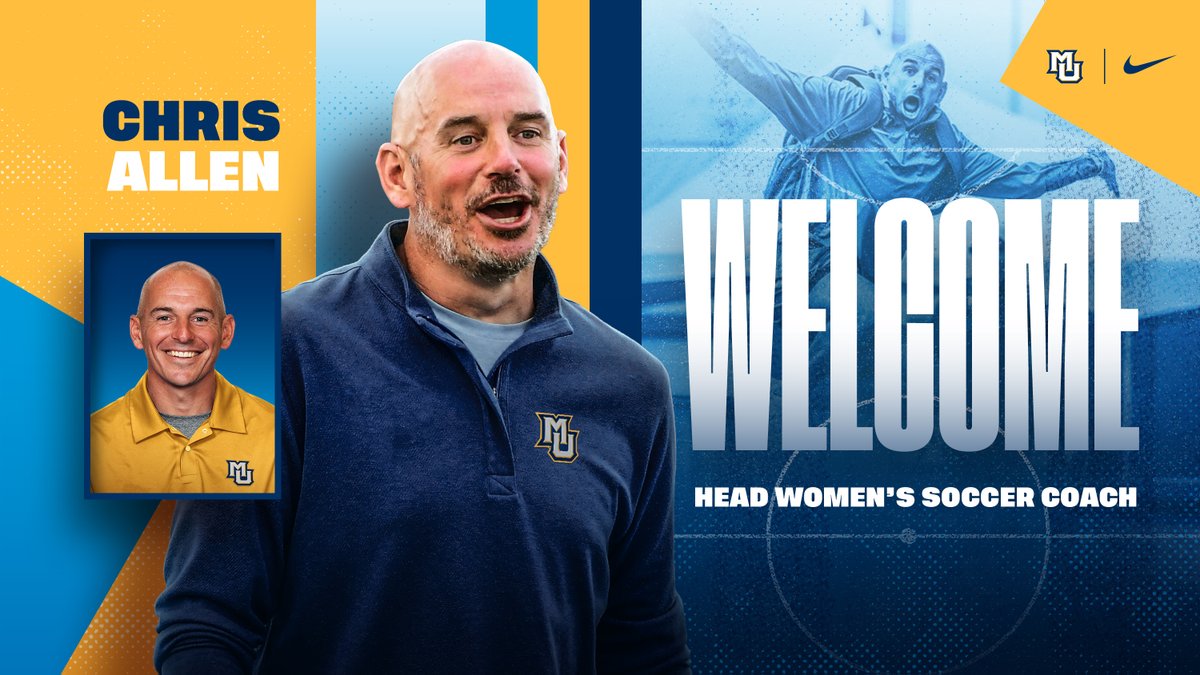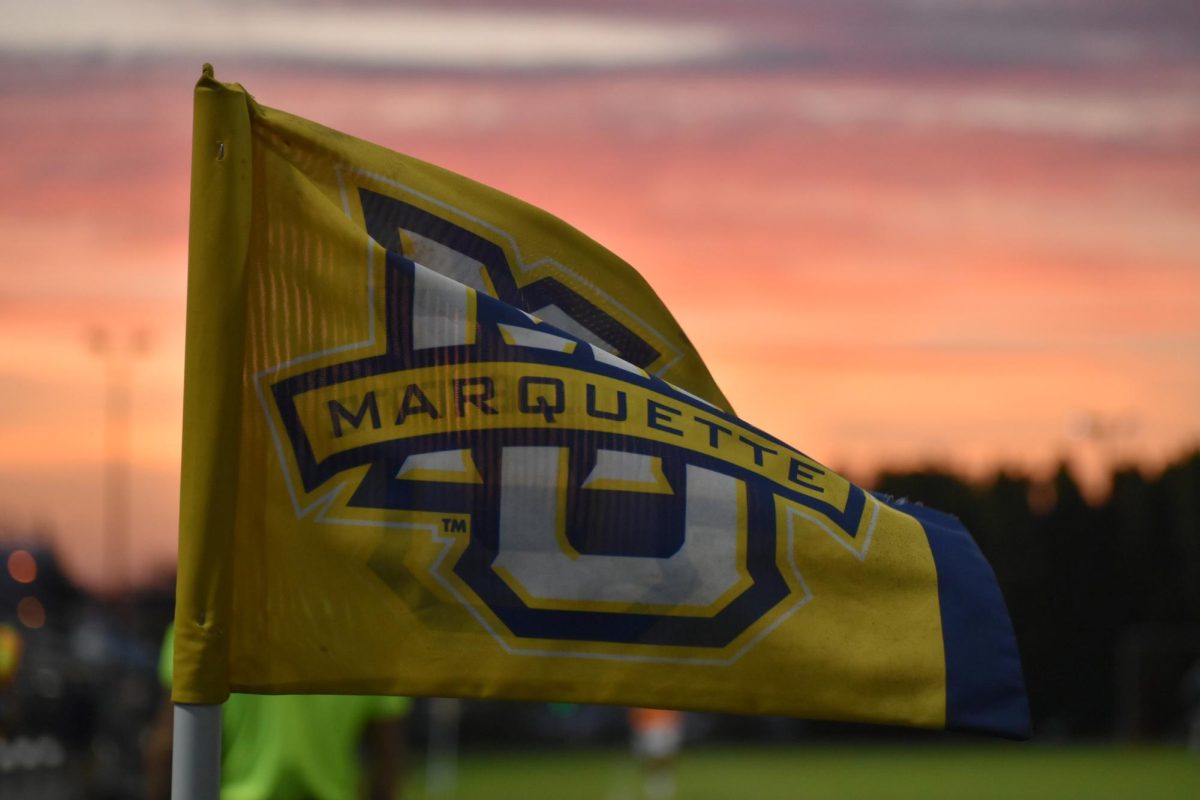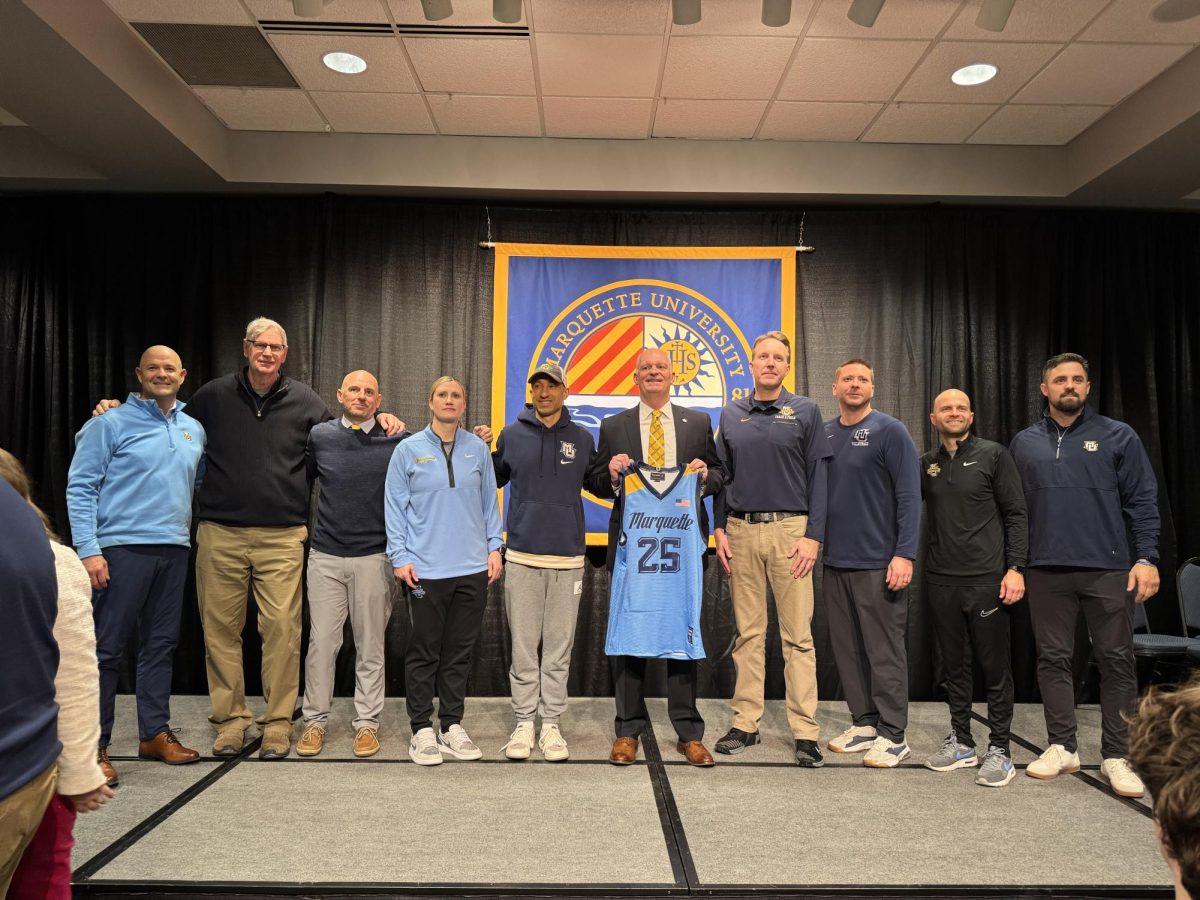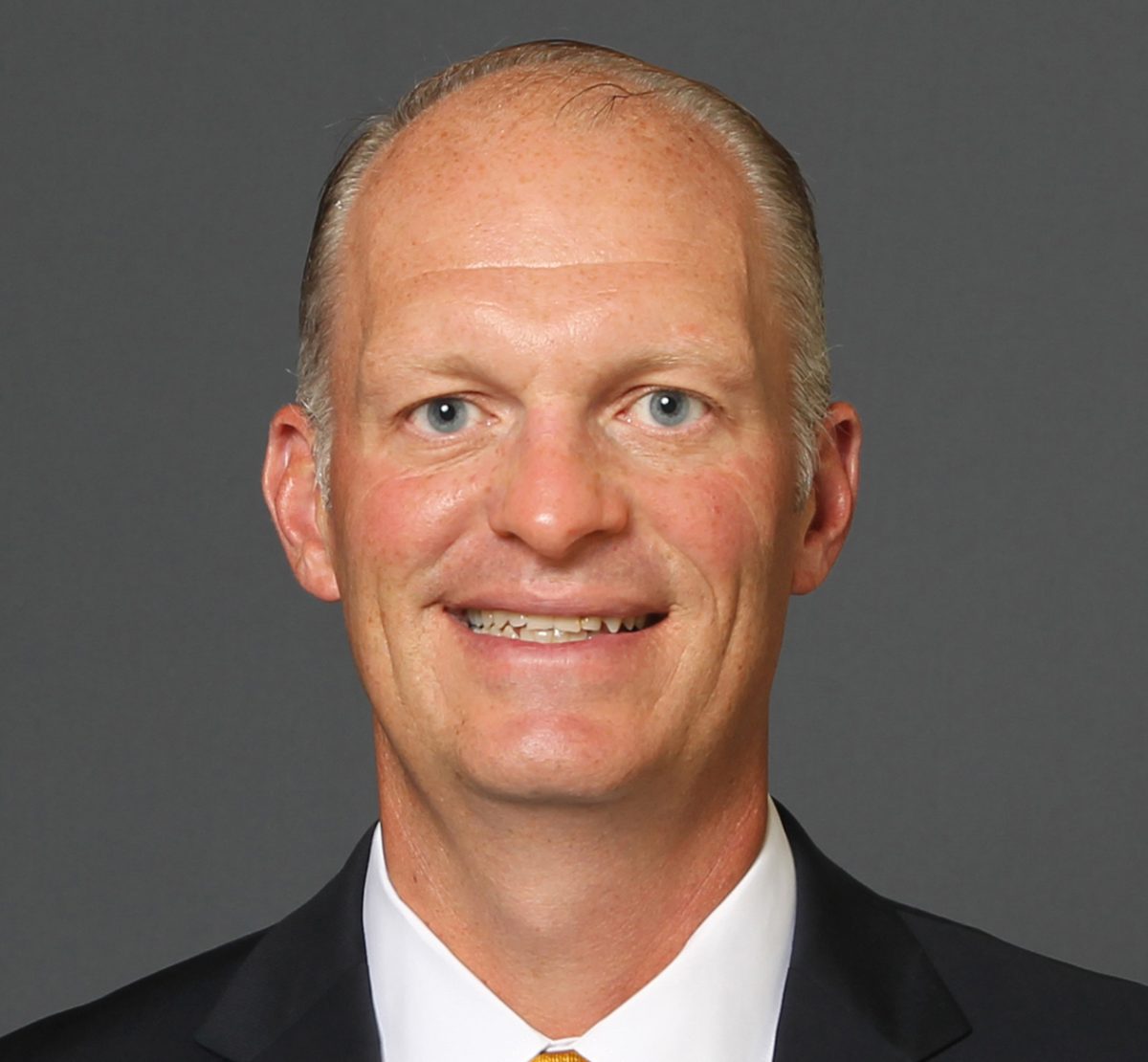Due to budget cuts made within Marquette Athletics, the Marquette men’s and women’s tennis and men’s and women’s track & field programs will be taken down to non-scholarship programs by the 2025-26 academic year.
Marquette vice president and director of athletics Bill Scholl and deputy athletic director Mike Broeker confirmed this with the Marquette Wire.
“We’re in year three of a multi-year process,” Scholl said. “Unfortunately, the budget realities forced us to make some moves and those are some of the moves we made.”
The NCAA permits its partnering institutions at the Division I level to offer 4.5 scholarships in men’s tennis and eight scholarships for women’s tennis. Meanwhile, for track and field, it allows 12.6 scholarships for men and 18 scholarships for women.
Despite the initiative, Scholl said the department will continue to honor commitments made to those currently on those teams along with each program’s incoming first-year classes.
“We didn’t take anything away from anybody,” Scholl said. “If we commit to a full ride for four years, they’re getting a full ride for four years.”
With athletic aid being completely phased out by 2025-26 for tennis and track and field, student-athletes will still be able to receive academic and financial aid.
Scholl said he informed the tennis program on this close to two years ago.
As for the track and field program, Scholl said he delayed that announcement until within the last few months as pieces were still being pieced together.
Back in March 2020, the NCAA reduced its distributions to schools by $375 million due to the COVID-19 Pandemic.
Scholl said he doesn’t want to use the economic setback brought by COVID-19 as an excuse for the budget cuts, but it was a factor. The Marquette Wire inquired about the exact budget numbers but Scholl and Broeker declined to comment.
“We’re always looking ahead and trying to anticipate what the future’s going to look like for us. I would say really it’s a university-wide process because we’re not the only ones to have had to tighten our belts over the past couple of years,” Scholl said.
“But more importantly is the effort to get our budget to a situation where we feel it’s sustainable and in the future. … One of our thought processes was, we didn’t want to do something that couldn’t be changed again down the road. Clearly if economics allowed us to grow it back, adding scholarships back in would not be a hard thing to do.”
Since it was a university decision, Scholl said the Big East conference had little to no involvement in this.
“Our peer group for sports like tennis and track is the Big East,” Scholl said. “In tennis and track, they’re all over the map. There are some that are non-scholarship. There are some that are fully funded. We’re not going to be the Lone Ranger in the conference when it comes to being non-scholarship.”
Amongst the 11 Big East schools, there are three men’s teams currently at 4.5 and four women’s at eight. There are three schools that do not have a men’s tennis program: UConn, Providence and Seton Hall.
In order to build the sustainable model that the department envisions for its future, Scholl said there was no way to avoid these budget cuts.
Broeker, who manages the day-to-day operations with a directed focus on external operations and revenue generation within the department, said there were no additional cuts made to the programs’ operating and spending budgets.
“You have three levers to pull financially. You have operating, you have personnel and scholarship. And scholarships was that last one,” Broeker said. “We stretch to the extent on the operating and the personnel side with our reductions.”
“We’re in a situation now with some programs where that athletic component has been diminished. We can still go out and recruit the best student athletes we have. But the aide has changed so the seesaw moved a little bit.”
He said two priorities, or commitments, in this process were protecting opportunities for athletes and making sure to not erode their experience at Marquette.
“Yes, we are phasing out scholarships, but we are protecting opportunities for kids to come to Marquette,” Broeker said. “Maybe it’s a different athlete than we’ve had in the past, but their experience should be the same. Our commitment to their academic support, our commitment to sports medicine, our commitment to strength and conditioning, none of that’s changed.”
Athletes in these respective sports come from all over the county and some even come from overseas.
“It will probably affect our ability to recruit international kids because they typically are looking for a pretty significant athletic scholarship to come here,” Scholl said. “That doesn’t mean we can’t get them and we’ll still continue to pursue them but generally speaking, at least the more talented ones would typically be looking for full rides. And that’s gonna be harder.”
Broeker said the programs will now need to work with the pool of aid from Marquette’s Office of International Education when it comes to recruiting international athletes.
“There’s more work to be done in the recruitment effort both outwardly and inwardly,” Broeker said. “You’re going to have to work a little bit more ahead to get reads from them. You have to work a little bit more ahead with financial aid. … Because if you are not a full scholarship kid, that additional aid is a driver of a decision maker.”
Scholl said he has talked with both head coaches Steve Rodecap and Bert Rogers on how this might affect their overall recruiting.
“They know their landscape better than anybody and they understand why we had to take some steps that we had to take,” Scholl said. “And they’re prepared to recruit under a different set of circumstances than they used to, but they’re full speed ahead.”
Another change could be seen in the strength of schedule for both sports.
“Your roster determines how you schedule. You see this in sports, whether they’re funded or unfunded you schedule differently. Both those programs are no different than others,” Broeker said. “But the beauty we have in our industry is we can schedule competitively in a way to give kids the opportunity to be successful.”
With neither sport having an official Big East conference schedule and just a conference tournament to participate in, the programs have freedom in picking their schedule and opponents.
“But what can’t be lost is that kids still have the opportunity to come to Marquette University to compete in a sport they love. And then we still have an obligation as coaches, trainers, athletic trainers and academic advisors to maximize their God-given ability.”
This article was written by John Leuzzi. He can be reached at john.leuzzi@marquette.edu or on Twitter @JohnLeuzziMU.

